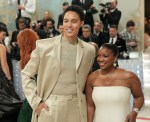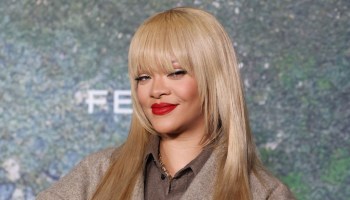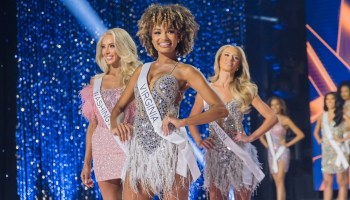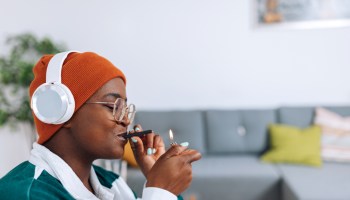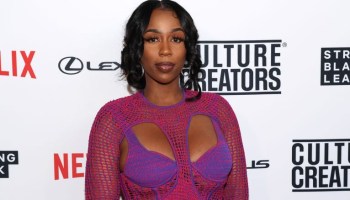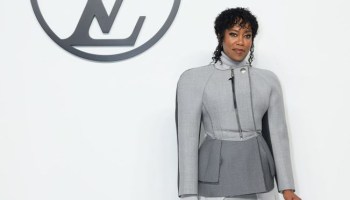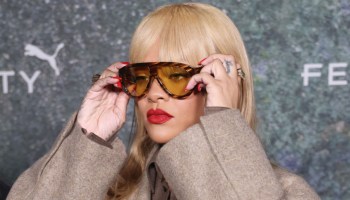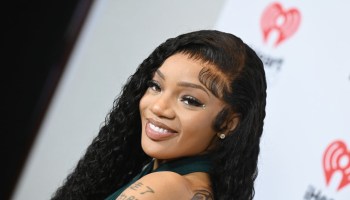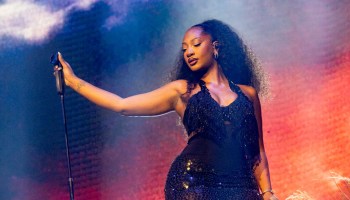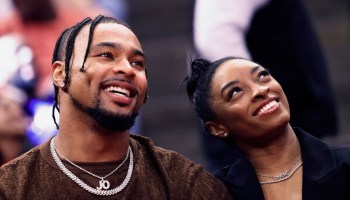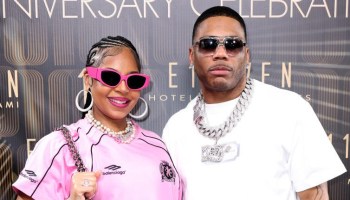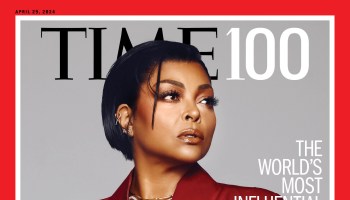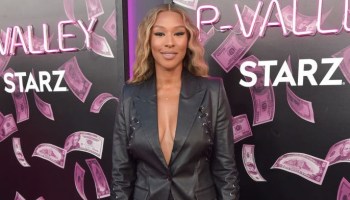This week, Larry Wilmore of The Nightly Show brought on a talented and successful quartet, which included Issa Rae (our fave), Jacque Reid of New York Live, Christina Greer of Fordham University and comedienne Marina Franklin to spotlight issues plaguing Black womanhood: the recent born-again matter of equal pay, the stereotypes of being too assertive and how all of this has affected the Black woman’s dating options.
MUST READ: Has Social Media Sparked A New Black Feminist Movement?
Earlier this month, The Nightly Show held a Black fatherhood segment with an impressive roster of brothers in entertainment and the media (*waves flirtatiously at Common*). It had more of a relaxed setting as Wilmore seemed to be kicking it with his homeboys. For Black womanhood, the host displayed a more formal tone and genuine interest to his guests, since the media talks about us and our bodies at length because we rarely get to speak our truths on it in the mainstream media.
The first topic was based on Patricia Arquette‘s Oscar-winning speech that demanded equal pay for women. The panel questioned whether she was vying for equal rights or White women’s rights in the workplace. Greer offered stats that “Blacks domestics” were omitted from FDR’s 1933 “New Deal” back in (the basis for why Black women are paid at 64 cents compared to the 77 cents White women earn to men’s $1), Reid delivered an anecdote on the hot topic, explaining that a White manager she used to work for was “afraid” of her because she’s “strong.”
Greer added that as a Black professor, she too has heard the “code word,” “afraid” from fellow Fordham professors who told her that students thought she was scary. Issa Rae said, “Whenever we assert ourselves, there’s the bitch factor.” To which Reid responded, “Yeah, after that White woman said she was afraid of me, I did kind of have to go like…what am I doing to make her feel afraid?” Franklin, the comedic relief, exclaimed, “Talking!”
The topic swiveled to relationships and dating and we know how much the media loves to remind Black women that we will have a harder time finding a mate, which sadly includes our educated and successful sistas. It showed us that there are four basic food groups of dating as a Black woman:
1. The one that has almost given up on Black men wanting them. (Issa Rae)
Rae says, “Black women and Asian men are at the bottom of the dating totem pole! But I do say that the more educated the Black women, and speaking from my own college experience, my Black girlfriends and I, the pool of guys was so limited. And [the Black men] knew they were a catch. They were educated. Weren’t in jail. Don’t have kids. ‘They’re like, hey! We have options. So work for us.’ And that made it unappealing. You begin to feel discouraged from pursuing Black love.”
2. The one who would rather be with a Black man than any other man. (Jacque Reid)
Reid says, “I have standards. People want to say that I’m picky. But I have standards. And there’s nothing wrong with that! But finding a quality Black man is like finding a $100 bill on a sidewalk in Midtown Manhattan. If it’s there, it’s not going to stay there long.”
3. The one who dates White men more than Black men. (Marina Franklin)
Franklin says, “You can see on YouTube and I talk about dating White men but it’s not like I’m excluding Black men but for some reason, they focus in on the fact that I don’t want to date Black men.
4. The one who magically found a good Black man and wants to spread the gospel that Black men actually want to date and marry a Black woman. (Christina Greer)
Greer say, [Laughs] I don’t want people to think that Black men are unicorns either! There are some good men out there.
Any sista that can be honest with herself knows that she’s all four of these girls once. Many Black women have wanted and still want someone who understands the plights and triumphs as a Black woman and appreciate the beauty that makes us unique. Most of us do consider giving interracial dating a shot, but that brings about another elephant in the room, which is the dated worry that your potential new White boyfriend is hanging out with you for fetish purposes. But that’s not always the case. Issa Rae said, “When I see a Black woman with a White man or someone outside the race, I tend to be like, ‘Girl! You get it! You trying!'”
What a fantastic episode! We actually got to see successful women acknowledge the hard parts of being Black and a woman in America without making it a pity party. These women are educated, innovative and inspiring, giving us a “you just gotta keep going” mantra that was apparent throughout the show.
Segments like these are more uplifting and real than the depressing series of Dark Girls and Light Girls combined because the collective goal was and is betterment of all Black women. Superficial elements such as skin tone and hair be gone! #BlackGirlsMatter
RELATED STORIES:
Lily Allen Objectifies Black Women To Make A Point About Objectifying Women
#WhiteGirlsRock Trends On Twitter In Response To 2013 ‘Black Girls Rock’
#SolidarityisSTILLforWhiteWomen: Feminist Sites Quiet On Ferguson & We’re So Not Surprised







